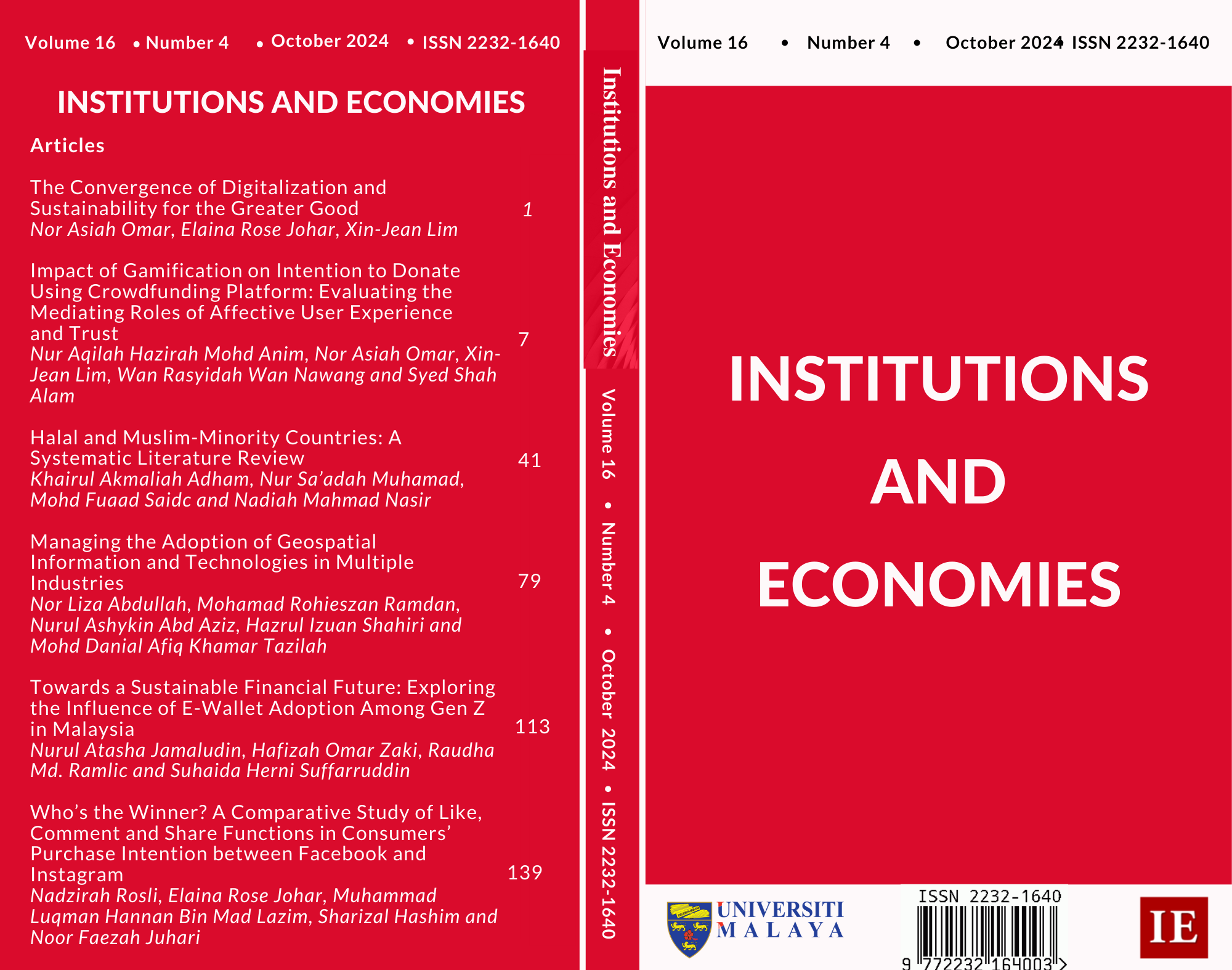Who’s the Winner? A Comparative Study of Like, Comment and Share Functions in Consumers’ Purchase Intention between Facebook and Instagram
Main Article Content
Abstract
In the past few years, there has been a significant focus on investigating the
impact of social media engagement. Although previous studies recognize the importance
of social media engagement, there is still a lack of in-depth analysis regarding the specific
influences of likes, comments, and shares on consumer behaviour, especially concerning
how these engagements affect different platforms. This study aims to examine the
relationship between social media engagement metrics (likes, comments, and shares) and
consumer purchase intention on two prominent platforms, Facebook and Instagram. By
adopting a cross-sectional design, this study employed purposive sampling to gather data
from Malaysian university students who have engaged in purchasing activities on social
media platforms such as Facebook and Instagram. The analysis was conducted using
Partial Least Squares Structural Equation Modeling (PLS-SEM) based on 265 completed
responses, comprising 131 from Facebook users and 134 from Instagram users. The
results reveal a significant positive relationship between likes and shares with consumer
purchase intention on both Facebook and Instagram. However, comments were not found to be associated with consumer purchase intention on either platform. Furthermore, the
study conducted a comparative analysis between Facebook and Instagram and found no
significant differences in the relationships between engagement metrics and purchase
intention. These findings have practical implications for marketers, emphasizing
the importance of fostering engagement through likes and shares to drive consumer
purchasing behaviour on social media platforms.
Downloads
Article Details
Submission of a manuscript implies: that the work described is original, has not been published before (except in the form of an abstract or as part of a published lecture, review, or thesis); that is not under consideration for publication elsewhere; that its publication has been approved by all co-authors, if any, as well as tacitly or explicitly by the responsible authorities at the institution where the work was carried out. Transfer of copyright to the University of Malaya becomes effective if and when the article is accepted for publication. The copyright covers the exclusive right to reproduce and distribute the article, including reprints, translations, photographic reproductions, microform, electronic form (offline and online) or other reproductions of similar nature.
An author may self-archive the English language version of his/her article on his/her own website and his/her institutions repository; however he/she may not use the publishers PDF version which is posted on www.ijie.um.edu.my. Furthermore, the author may only post his/her version, provided acknowledgement is given to the original source of publication and a link must be accompanied by the following text: The original publication is available at www.ijie.um.edu.my.
All articles published in this journal are protected by copyright, which covers the exclusive rights to reproduce and redistribute the article (e.g. as offprint), as well as all translation rights. No material published in this journal may be reproduced photographically or stored on microfilm, in electronic database, video disks, etc., without first obtaining written permission from the publishers. The use of general descriptive names, trade names, trademarks, etc., in this publication, even if not specifically identified, does not imply that these names are not protected by the relevant laws and regulations.
The copyright owners consent does not include copying for general distribution, promotion, new works, or resale. In these cases, specific written permission must first be obtained from the publishers.

